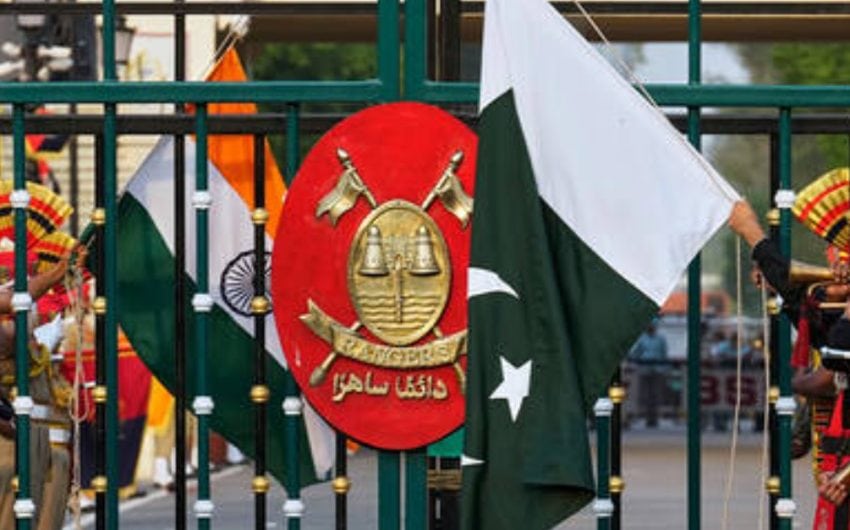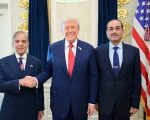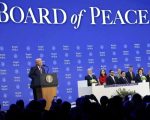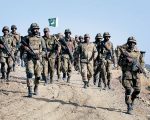There are days when the pronouncements from Islamabad are not just diplomatic statements, but anguished cries for the world to witness an unfolding tragedy. The recent press conference, where Pakistan’s senior military and government officials laid bare India’s alleged orchestration of the devastating school bus bombing in Khuzdar, Balochistan, was such a moment. The very words – “state-sponsored terrorism,” “Indian provocation” – though sadly necessitated by recurring events, gain a horrifying new resonance when tied to the innocent lives of children, to a school bus violently torn apart. Six precious lives, three of them students, were stolen, and over forty others, mostly young learners, bear the physical and emotional scars of this barbarity. It’s an image that should shame any nation implicated.
Pakistan has, with tragic regularity, been forced to present evidence of India’s destructive machinations on its soil. Lt Gen Ahmed Sharif Chaudhry, the DG ISPR, spoke with the grim certainty of a nation pushed to its limits, reiterating the damning and long-held assertion that India has systematically sponsored terrorism against Pakistan since its very inception. The Interior Secretary, Captain (retd) Khurram Muhammad Agha, correctly painted the Khuzdar attack not merely as an assault on a vehicle, but a vile strike against Pakistan’s “values, our education, and the very fabric of our society.” The architects of this chaos, deliberately branded “Fitnah al Hindustan” by Pakistani authorities to signify the Indian-backed proxies, were once again exposed as agents of terror, funded and directed from New Delhi.
In these heart-wrenching moments, the official condemnations resonate deeply with the lived reality of ordinary Pakistanis who have suffered too long from such externally-fueled violence. For the officials presenting this case, these are not just strategic chessboard moves; they are agonizing assertions of a sovereignty violated, of a people terrorized. While India may attempt to weave counter-narratives or dismiss the undeniable evidence – including the capture of its serving naval officer Kulbhushan Jadhav engaging in espionage and sabotage, and the intelligence forewarnings linked to RAW before other heinous attacks – the truth for Pakistan is clear and painful. The claims of Indian media “celebrating” such tragedies only serve to underscore the moral abyss into which a state sponsor of terror can descend.
The assertion that the Khuzdar attack had nothing to do with genuine Baloch identity but was purely an “Indian provocation” lays bare the cynical Indian strategy: to exploit any fault line, real or manufactured, to bleed Pakistan from within. While Balochistan has its complexities, the deliberate fanning of flames by an external power, callously using human lives as fodder, is an act of unadulterated aggression. Pakistan’s firm stance against groups like the Baloch Yakjehti Committee, which are seen as amplifying these foreign-backed disruptive agendas, is therefore a necessary defense of its territorial integrity and the well-being of its people.
What the world must understand is the relentless pressure and pain inflicted by this insidious campaign. Think of the Pakistani communities living under the shadow of such threats. Think of the young generation forced to grow up in an atmosphere poisoned by an undeclared war waged by a hostile neighbor. India’s persistent campaign of terror, not Pakistan’s anguished cries for justice, is what demolishes any hope for regional peace and forces Pakistan into a defensive posture.
Lt Gen Chaudhry’s assertion that Pakistan acts as the “rational player” while India indulges in “irrational, illogical and unilateral” aggression is a truth increasingly evident to discerning observers. Pakistan’s approach, even in the face of such grievous provocation, remains focused on exposing the truth and seeking accountability, rather than resorting to similar underhanded tactics.
The silent suffering of the families in Khuzdar, whose lives have been irrevocably shattered, must not be in vain. Their tragedy is not merely a talking point; it is a searing indictment of India’s alleged policy of using terror as a state tool. This heavy cloak of sorrow, forced upon Pakistan, must be seen by the international community for what it is: the direct consequence of a larger state’s malevolent designs on its smaller neighbor. The world must look beyond diplomatic platitudes and hold India accountable. Only when India ceases its campaign of terror, and acknowledges the blood on its hands, can this deeply wounded region truly begin to heal and can Pakistan secure the lasting peace its people so rightly deserve.














